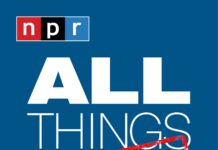Two former heads of the Centers for Medicare and Medicaid Services (CMS), serving under both Republican and Democratic administrations, weighed in today to support President Biden’s federal vaccination policy requiring that health care workers at Medicare and Medicaid facilities are fully vaccinated. The Supreme Court will hear oral arguments today on challenges to the OSHA and CMS vaccination policies first announced in November.
Mark McClellan and Andy Slavitt note that, “Congress has explicitly authorized CMS to issue regulations, including emergency rules, to protect the health and safety of patients covered by Medicare and Medicaid… Given that the coronavirus transmits so rapidly and that vaccines against it have proved to be safe and effective in reducing transmission, a vaccine requirement would protect patients.”
They also highlight that vaccination policies have already been widely effective at increasing vaccination rates, noting that “…there is substantial evidence that vaccine requirements significantly increase vaccination rates — by at least 10 to 20 percentage points — especially when implemented with effective outreach and incentives. This has led to greater staff confidence in workplace safety and thus greater ability to provide critical health services safely.”
Read the full opinion below:
Opinion: We both led Medicare and Medicaid. Biden’s vaccine mandate for health-care workers must stand.
[Mark McClellan and Andy Slavitt, 1/7/22]
The Supreme Court on Friday will consider challenges to the Centers for Medicare and Medicaid Services’ rule requiring coronavirus vaccination for almost all health-care workers at facilities participating in the agency’s programs. We led CMS in different administrations and sometimes have differing views on health-care policy. But here we agree: The vaccine requirement for health-care workers should stand.
First, it’s a policy that carries out congressional intent. Congress has explicitly authorized CMS to issue regulations, including emergency rules, to protect the health and safety of patients covered by Medicare and Medicaid. Indeed, many of these statutory authorities state that such actions are CMS’s “duty and responsibility.” Just as the Defense Department should ensure that a taxpayer-funded fighter jet delivered by a defense contractor is safe, so, too, must CMS make sure that participating health-care providers are delivering care in a safe environment.
Given that the coronavirus transmits so rapidly and that vaccines against it have proved to be safe and effective in reducing transmission, a vaccine requirement would protect patients. It’s also important for reliable staffing, as infections continue to disrupt facilities’ operations during the omicron surge. For these reasons, most medical and public health organizations support the requirement.
Some have argued that facilities, particularly nursing homes and rural providers, will lose critical staff who are unwilling to be vaccinated. While some workers have quit, and others might do the same because of CMS’s mandate, there is substantial evidence that vaccine requirements significantly increase vaccination rates — by at least 10 to 20 percentage points — especially when implemented with effective outreach and incentives. This has led to greater staff confidence in workplace safety and thus greater ability to provide critical health services safely. Duke Health, where one of us, Mark, is on the faculty, has achieved more than 99 percent vaccination through a systemwide requirement coupled with outreach, education and steps to make vaccination easy. We believe there is a greater risk to the labor pool from illness from covid-19 than from a vaccine requirement.
Others argue that the authority to issue such a requirement should be reserved for state and local governments. The concern is that the federal government’s requirement has heightened the tension over vaccination requirements, in turn leading to greater political opposition and more Americans being unwilling to undergo vaccination.
It’s true that in an ideal world, efforts to engage Americans on vaccination would focus on facts relevant to each individual, family and community, and would be aided by local conversations. But in our contentious political environment, political divisions do have an impact. This has been compounded by misinformation about the vaccines.
Consequently, we understand that a different administration might reach a different conclusion about the public health value of a vaccination requirement, leaving such decisions to the state and local levels or implementing CMS incentives, not requirements, for vaccination. But the law makes each administration accountable for assuring patient health and safety. The current CMS leaders and the health and human services secretary have decided, based on a reasonable review of the available evidence, to require health-care workers to be vaccinated to protect Medicare and Medicaid patients.
We expect the debate will continue and evidence will improve on how the vaccination requirement can best be implemented to achieve its goals. But especially during a pandemic in which the threat and the tools to combat it are rapidly changing, imposing a new limitation on CMS’s broad authority to protect patients would have substantial negative consequences for the success of Medicare and Medicaid. How many other reasonable regulations to protect those programs’ beneficiaries could be derailed if these authorities were restricted?
Our hope is that more Americans will look at the evidence and choose to get vaccinated. We believe the CMS vaccination requirement for health-care workers will help by forcing more workers to think deeply about risks and benefits. And by significantly increasing vaccination rates, we expect the requirement will reduce covid-19 disruptions in health-care facilities.
But regardless of our views on vaccination requirements, Congress has given CMS broad authority to put them in place. CMS leaders must protect the well-being of all the beneficiaries the agency serves, including millions of the most high-risk and vulnerable Americans in the pandemic. This is no time to undermine the ability of those leaders to carry out their critical responsibilities.












